The Department of Health today reported that a school-aged child is recovering in hospital after having been diagnosed with meningococcal disease.
Meningococcal disease is an uncommon, life-threatening illness caused by a bacterial infection of the blood and/or the membranes that line the spinal cord and brain, and occasionally of other sites, such as large joints.
The Department of Health has identified the close contacts of the case and provided them with information, and, where appropriate, antibiotics that minimise the chance that the organism might be passed on to others.
The incidence of meningococcal disease has decreased significantly in WA over the past decade, with around 20 cases reported each year – down from a peak of 86 cases in 2000.
Seventeen cases were reported during 2015, and this is the third case diagnosed in 2016. The disease occurs more commonly in winter and spring.
Meningococcal bacteria are carried harmlessly in the back of the nose and throat by about 10-20 per cent of the population at any one time. Very rarely, the bacteria invade the bloodstream and cause serious infections.
Meningococcal bacteria are not easily spread from person-to-person. The bacterium is present in droplets discharged from the nose and throat when coughing or sneezing, but is not spread by saliva and does not survive more than a few seconds in the environment.
Invasive meningococcal infection is most common in babies and young children, and older teenagers and young adults, but infection can occur at any age.
Symptoms may include high fever, chills, headache, neck stiffness, nausea and vomiting, drowsiness, confusion, and severe muscle and joint pains. Young children may not complain of symptoms, so fever, pale or blotchy complexion, vomiting, lethargy (blank staring, floppiness, inactivity, hard to wake, or poor feeding) and rash are important signs.
Sometimes – but not always – symptoms may be accompanied by the appearance of a spotty red-purple rash that looks like small bleeding points beneath the skin or bruises.
Although treatable with antibiotics, meningococcal infection can progress very rapidly, so it is important that anyone experiencing these symptoms seeks medical attention promptly.
With appropriate treatment, most people with the disease recover, although around 5 per cent will die and around 15 per cent may experience complications such as hearing loss, or gangrene requiring skin grafts or amputations.
A vaccine to protect against the “serogroup C” type of meningococcal disease, which in the past was responsible for around 15 per cent of cases in WA, is provided free to children at 12 months of age. A vaccine against serogroup B meningococcal infection, the most common type in WA, is available on prescription. Combination vaccines are also available that protect against other types of the organism that occur very rarely in Australia, but more commonly overseas.
SOURCE: WA Health Department
